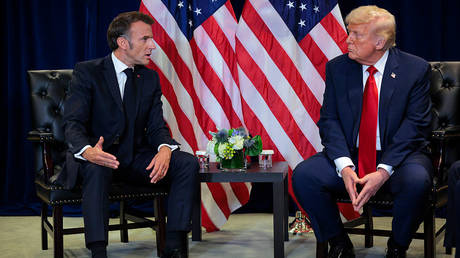
The US secretary of state has argued that a potential settlement must not “reward” Russia
US Secretary of State Antony Blinken has argued that a ceasefire in Ukraine that might benefit Russia would not create a lasting peace.
In a speech to the Helsinki City Hall on Friday, Blinken reiterated Washington’s support for Kiev and outlined his vision of what would bring an end to the fighting between Russia and Ukraine.
“Now, over the coming weeks and months, some countries will call for a ceasefire. And on the surface, that sounds sensible – attractive, even. After all, who doesn’t want warring parties to lay down their arms? Who doesn’t want the killing to stop?” Blinken said.
He added that “a ceasefire that simply freezes current lines in place” would allow Russia to “consolidate” control over territory and “re-attack,” arguing “that is not a just and lasting peace. It’s a Potemkin peace.” Blinken was referring to the type of window-dressing reportedly practiced by Russian statesman Grigory Potemkin while seeking to impress Catherine the Great.
“It would reward the aggressor and punish the victim,” Blinken said. Instead, the diplomat argued that a potential deal must ensure Ukraine’s “sovereignty, territorial integrity, and independence” and that it would require Kiev’s “full participation and assent.” He also insisted that Russia must pay “its share” in Ukraine’s post-conflict recovery.
“If and when Russia is ready to work for true peace, the United States will respond in concert with Ukraine and other allies and partners around the world,” Blinken stated.
Western officials have said in the past that Kiev should only make peace on its own terms. Ukrainian President Vladimir Zelensky revealed a “peace formula” last year, calling for Russia to surrender its four newly incorporated regions, as well as Crimea. Moscow has repeatedly rejected these terms as unacceptable.
Moscow, in turn, has insisted that peace can only be achieved if Ukraine becomes a neutral state by dropping its bid to join NATO and recognizes Russia’s territorial acquisitions.




